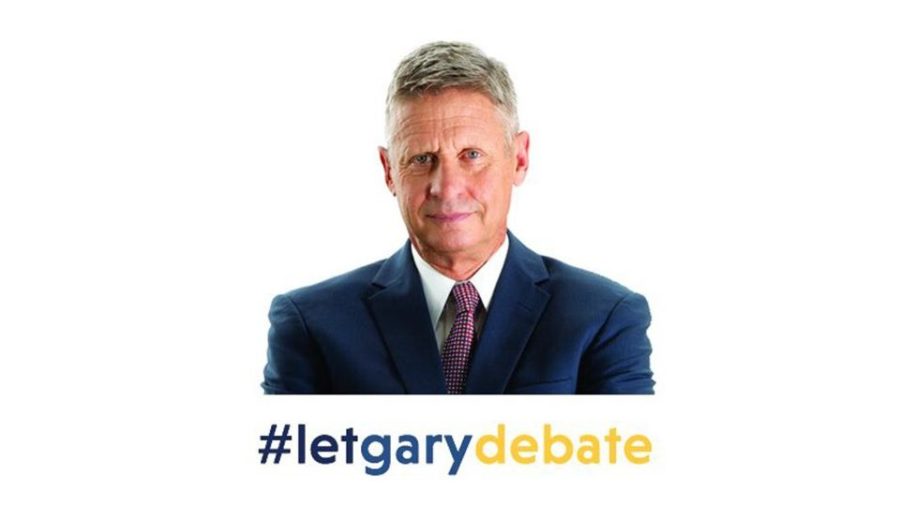Gary Johnson is unlikely to be the next president of the United States of America. The two-time Republican governor of New Mexico and current Libertarian candidate for the presidency of these United States is polling woefully low, with national polls putting him at best at 13 percent, and closer to 9 percent on aver- age. While these numbers can be seen in a positive light when the fact that the Libertarians gained a little under 1 percent of the vote in the 2012 election, they are also something of an indictment of the ability of our political system to support more than two major parties.
In this election year the Repub- licans and Democrats are rolling out literally the two least liked and least popular candidates of all time in Donald Trump and Hillary Clinton. And literally is meant as literally as possible; according to the Washington Post both Clinton and Trump are viewed negatively by 60 percent of the American population, a staggeringly high majority in this context.
In other words, if there was ever a year for a third party candidate to make an impact and really have a shot at winning the election, it would be this year. Instead, the Libertarian ticket has struggled to make headway. Some of this difficulty is due to gaffes (“What is Aleppo?” was particularly pain- ful), some of this is due to already low visibility and the continued lack of in-depth interest in poli- tics by most Americans, and some of this is due to the major parties working in concert on the only thing they really agree on: crush- ing any attempts to challenge their hold on power in the electoral system.
Take the Presidential Debates. The single largest event of any election year, appearing on and doing well in the Presidential Debates is basically a perquisite for any candidate who would win the election. Unfortunately for Johnson, it is almost impossible for a third party candidate to gain access to the debates.
The debates are governed by the officially nonpartisan Commission on Presidential Debates. However, the Commission is not non-partisan in being not affili- ated with the parties, but rather non-partisan in the Washington sense of have an equal number of partisans to balance each other out. The Chair of the Commission is Frank Fahrenkopf, former head of the Republican National Com- mittee, and the members include Leon Panetta (former President Clinton Chief of Staff), Olympia Snow (former Republican Senator), and Mike McCurry (former Clinton Press Secretary). Thus the commission, if not outright rigged against a third party challenge, is at a minimum at least likely to not look kindly on one.
Anyway, the Commission has a mid-September deadline for candidates to meet the three criteria they use to determine eligibility for the Presidential debates. These three criteria are “evidence of constitutional eligibility,” “evidence of ballot access” and “indicators of electoral support.” The first two Johnson easily has. He is constitutionally eligible to be elected, being an American citizen over the age of 35 (as is Jill Stein of the Green Party). He has evidence of ballot access, as aside from the Republicans and the Democrats his Libertarian Party is the only party on the ballot in all fifty states.
The tough one is the “indicator of electoral support.” The Commission rather arbitrarily defines this qualification as requiring
that a candidate be polling at or around 15 percent nationally. Now the national five polls used by the Commission to determine this have Johnson averaging 9 per- cent (though as mentioned above the Quinnipiac Poll has him at 13 percent, but is not one of the polls the Commission uses).
This is where the two major parties have the advantage. Being able to define what “indicators of electoral support” are means that the Democrats and Republicans can work together to set a number like 15 percent in the polls, which they know is very difficult for a candidate starting from a party with low national visibility to hit without national exposure. Then, they deny any viable third-party candidate any national exposure by barring them from the debates for not having the national expo- sure which only the Presidential Debates could realistically give them. It is admittedly a brilliant catch-22 on the part of the major parties, but it does not help our democracy and limits us, the voters, to a false choice between only two options.
The solution to this is to change the criteria for being included in the debates. Strike the third criterion of “indicators of elec- toral support” and instead allow it to be the first two. As long as a candidate is constitutionally eligible and they have completed the herculean task of getting their name on the ballot in every state, giving every citizen the ability to vote for them and legitimizing their bid, they should be allowed to participate in the Presidential Debates.
Furthermore, perhaps it is time to examine just what the meaning of non-partisan is in this context. Instead of the major parties pack- ing the Commission on Presiden- tial Debates with former politi- cians and government officials it should be truly reformed, either by including representatives of the minor parties or by requiring all members to have never held office or been involved in the party ap- paratus before.
































